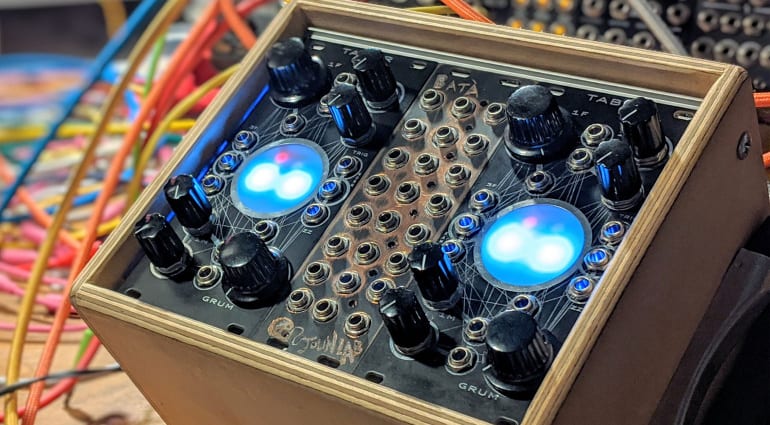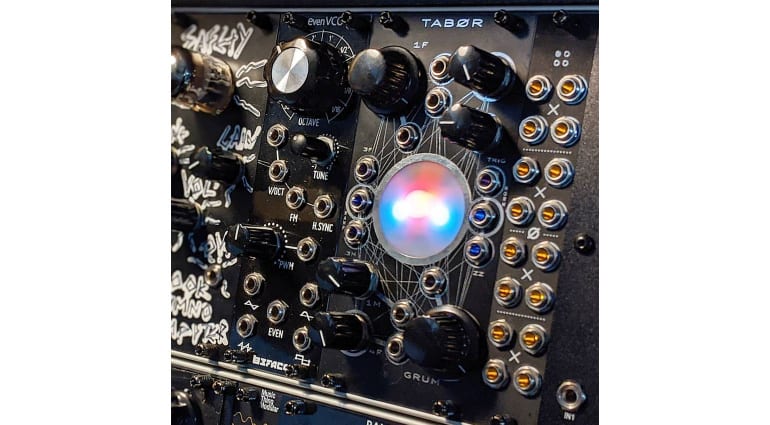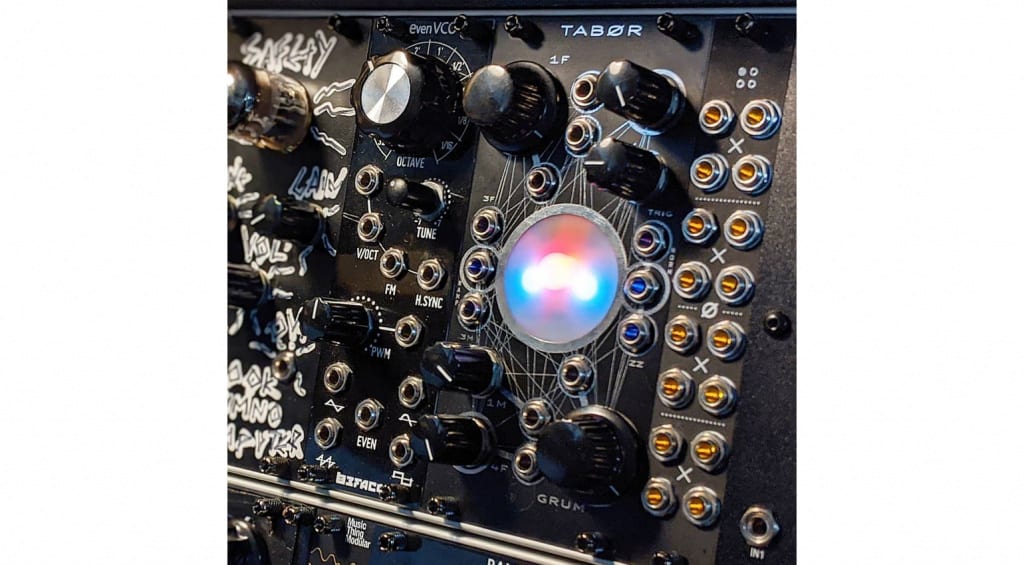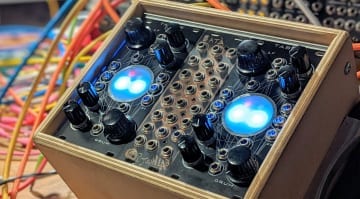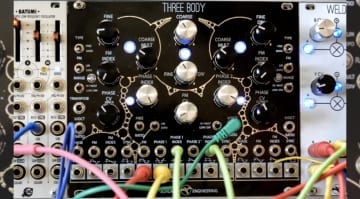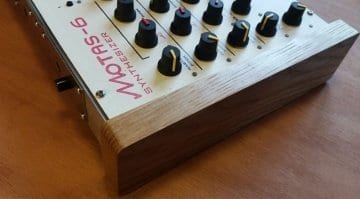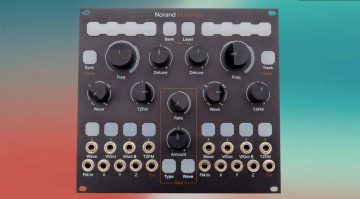TABØR: Analogue rhythmic car crash oscillator with a glowing orb of destruction
TABØR kicks off like some kind of steam-punk spaceship spluttering into life and pulsing sound and light at you as it screams and thuds its way into orbit. This is going to be epic.
Hand-crafted madness
Jolin Lab is a place of hand-crafted analogue and digital tools by Pedro Ferragut and Federico Intrisano. I’ve been watching TABØR emerge on their Facebook feeds for a couple of weeks and they are now taking preorders. And this thing looks amazing!
According to the website:
TABØR is a rhythmic analogue sound and CV source based on the unpredictability of four avalanche transistors in a continuous oscillation state.
Well, that sounds interesting. The idea is that you have 4 unpredictable core oscillators that are related to one another. As they charge and discharge they create complex rhythmic sound textures that can be messed with and triggered via CV. So it’s essentially 4 lots of badly behaved sound having a fight while a crowd of CV cheers them on – like I say, epic.
Relationships
The relationship between the oscillators is defined by two controls; F which regulates the distance between the sawtooth waves, or I guess you’d call that “frequency”; and M which is the amount of cross-modulation of each core with the others. But then each oscillator uses these controls differently depending on the state of the others.
- 1F: ramp frequency control of oscillator 1
- 1M: cross-modulation control of oscillator 1
- 2F: ramp frequency control of oscillator 2
- 2M: cross-modulation control of oscillator 2
- 3F : ramp frequency control of oscillator 3
- 3M: cross-modulation control of oscillator 3
- 4F: ramp frequency control of oscillator 4
- 4M: cross-modulation control of oscillator 4
Have you got all that? So what sort of stuff comes out the other end? Well, you get dry craziness out of one output and fuzzed up craziness out of another via an internal diode-based distortion circuit. There’s also a bunch of triggers generated from somewhere and sent to the TR output.
Car crash cross-modulation
TABØR is a car crash of 4 cross-modulating oscillators that can generate all sorts of tones and timbres while pulsing and spitting on itself before the whole engine spins into self-oscillation. It doesn’t really do 1v/oct or harmonic relationships, it’s more of a sonic playground where all the swings have been vandalised. But once it starts going it generates some alarmingly good rhythms.
That glowing orb is also rather enticing and would look fabulously over-the-top in any rack. They also do an alternative White Mirror panel which is beautiful and transforms the orb into something quite different.
You are currently viewing a placeholder content from Default. To access the actual content, click the button below. Please note that doing so will share data with third-party providers.
Preorders are open now and they are planning on building 50 fully assembled versions for €240 and 50 full kits for €170.
More information
- Jolin Lab website.
Video
There are a couple of videos on their YouTube channel including one that tries to answer common questions about the module. But I’d recommend starting with this one for a good idea of what it can do.
You are currently viewing a placeholder content from YouTube. To access the actual content, click the button below. Please note that doing so will share data with third-party providers.

